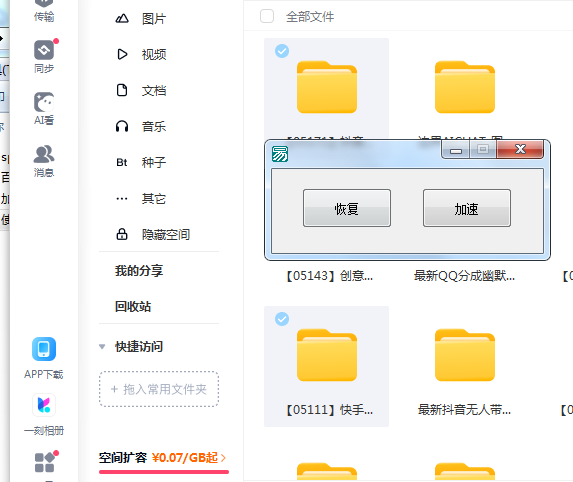
在 CodeIgniter 控制器中,如何在不同的函数之间传递计算后的变量值。重点讲解了通过控制器类的属性以及函数参数传递数据的方法,并提供了代码示例,帮助开发者理解如何在控制器内部共享数据,避免使用 Session 或 Cookie 等方式。
在 CodeIgniter 框架中,经常需要在同一个控制器内的不同函数之间共享数据。例如,一个函数计算得到一个值,需要在另一个函数中使用。本文将介绍几种在 CodeIgniter 控制器中传递变量的方法,并提供示例代码。
方法一:使用控制器类的属性
最常用的方法是将变量定义为控制器的属性。这样,控制器内的所有函数都可以通过 $this-youjiankuohaophpcn属性名 访问该变量。
<?php class Employees extends CI_Controller { private $jwtoken; // 定义控制器属性 public function __construct() { parent::__construct(); } public function auth() { $adminEmail = $this->input->post('adminEmail'); $adminPassword = $this->input->post('adminPassword'); if ($adminEmail != "" && $adminPassword != "") { $query = $this->db->query("select * from admin_tbl where email= '$adminEmail' and password = '$adminPassword'"); //if user exist if ($query->num_rows() <= 0) { $response = array(); $this->jwtoken = ""; // 初始化控制器属性 $this->session->set_flashdata("invalid", "Wrong email or password"); $response = array( 'status' => 'invalid', 'message' => $_SESSION['invalid'], 'token' => $this->jwtoken, ); //used to send finalized values $this->output ->set_content_type('application/JSon') ->set_output(json_encode($response)); return $this->jwtoken; //return value } else { // $this->session->set_userdata('adminEmail', $adminEmail); $response = array(); $jwt = new JWT(); $data = array( 'adminEmail' => $adminEmail, 'iat' => time() ); $this->jwtoken = $jwt->encode($data, jwtSecretKey, 'HS256'); // 设置控制器属性 // I want to pass $jwtoken's variable to all the functions in a controller $this->session->set_flashdata("login", "Scucessfully login!"); // if (isset($_SESSION['adminEmail'])) { if ($this->jwtoken != "") { $response = array( 'status' => 'valid', 'message' => $_SESSION['login'], 'token' => $this->jwtoken ); } $abc = $this->jwtoken; //used to send finalized values $this->output ->set_content_type('application/json') ->set_output(json_encode($response)); return $this->jwtoken; //return value } } } public function addNew() { $response = array(); echo $this->jwtoken; // 访问控制器属性 } } ?>
说明:
- 在 Employees 类中,我们首先定义了一个私有属性 $jwtoken。
- 在 auth() 函数中,我们计算得到 $jwtoken 的值,并将其赋值给 $this->jwtoken。
- 在 addNew() 函数中,我们通过 $this->jwtoken 访问了 $jwtoken 的值。
优点:
- 简单易懂,易于实现。
- 可以在控制器内的任何函数中使用。
缺点:
- 如果控制器属性过多,可能会导致代码难以维护。
- 所有函数都可以修改该属性,可能导致数据混乱。
方法二:通过函数参数传递
另一种方法是将变量作为参数传递给需要使用它的函数。
<?php class Employees extends CI_Controller { public function __construct() { parent::__construct(); } public function auth() { $adminEmail = $this->input->post('adminEmail'); $adminPassword = $this->input->post('adminPassword'); if ($adminEmail != "" && $adminPassword != "") { $query = $this->db->query("select * from admin_tbl where email= '$adminEmail' and password = '$adminPassword'"); //if user exist if ($query->num_rows() <= 0) { $response = array(); $jwtoken = ""; $this->session->set_flashdata("invalid", "Wrong email or password"); $response = array( 'status' => 'invalid', 'message' => $_SESSION['invalid'], 'token' => $jwtoken, ); //used to send finalized values $this->output ->set_content_type('application/json') ->set_output(json_encode($response)); return $jwtoken; //return value } else { // $this->session->set_userdata('adminEmail', $adminEmail); $response = array(); $jwt = new JWT(); $data = array( 'adminEmail' => $adminEmail, 'iat' => time() ); $jwtoken = $jwt->encode($data, jwtSecretKey, 'HS256'); // I want to pass $jwtoken's variable to all the functions in a controller // this is one way you can pass the value to another function, depending on what you want to do, you can also place a condition and continue only if the return value of the following function is respected: $this->addNew($jwtoken); // What is the addNew() supposed to do? $this->session->set_flashdata("login", "Scucessfully login!"); // if (isset($_SESSION['adminEmail'])) { if ($jwtoken != "") { $response = array( 'status' => 'valid', 'message' => $_SESSION['login'], 'token' => $jwtoken ); } $abc = $jwtoken; //used to send finalized values $this->output ->set_content_type('application/json') ->set_output(json_encode($response)); return $jwtoken; //return value } } } public function addNew($jwtoken = "default_value_if_not_set") { echo $jwtoken; } } ?>
说明:
- 在 auth() 函数中,我们计算得到 $jwtoken 的值。
- 我们调用 addNew() 函数,并将 $jwtoken 作为参数传递给它。
- 在 addNew() 函数中,我们接收 $jwtoken 参数,并使用它。
优点:
- 可以明确指定哪些函数可以使用该变量。
- 避免了全局变量可能导致的问题。
缺点:
- 如果需要传递的变量很多,可能会导致函数签名过长。
- 需要在每次调用函数时都传递参数,比较繁琐。
总结
在 CodeIgniter 控制器中传递变量,可以使用控制器类的属性或函数参数传递。选择哪种方法取决于具体的应用场景。如果需要在多个函数中使用同一个变量,并且不希望频繁传递参数,则可以使用控制器类的属性。如果只需要在特定的函数中使用该变量,并且希望明确指定哪些函数可以使用该变量,则可以使用函数参数传递。
以上就是在 CodeIgniter 控制器中传递函数计算值的详细内容,更多请关注php中文网其它相关文章!
© 版权声明
文章版权归作者所有,未经允许请勿转载。
THE END

















